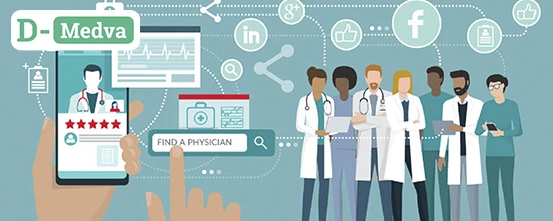How Omneky Smart Ads are Revolutionizing Patient Engagement in Hospitals
Introduction The healthcare industry is undergoing a digital transformation, and patient engagement is at the heart of it. Hospitals are no longer relying solely on traditional communication methods like brochures, posters, or call centers. Instead, they are turning to AI-powered healthcare advertising to connect with patients in smarter, more personalized ways. This is where Omneky Smart Ads are making a significant impact. By using generative AI in healthcare marketing, hospitals can create customized, data driven campaigns that resonate with patients, improve communication, and ultimately enhance the overall care experience. The Growing Importance of Patient Engagement in Hospitals Modern patients expect more than treatment they want transparency, accessibility, and personalized communication. Patient engagement in hospitals improves: Traditional advertising often struggles to achieve these goals because it’s generic and doesn’t adapt to different patient needs. That’s where AI-driven patient communication comes in. What Are Omneky Smart Ads? Omneky Smart Ads are AI-generated, brand-aligned advertisements designed to optimize campaigns across multiple platforms. They use generative AI to create personalized content—whether it’s text, images, or videos—that reflects patient needs while maintaining a hospital’s brand identity. Key Features: For hospitals, this means saving time while delivering smart ad campaigns for healthcare that actually connect with patients. How Smart Ads Revolutionize Patient Engagement 1. Personalized Hospital Advertising Instead of generic “Visit our hospital” messages, Smart Ads allow hospitals to target patients with personalized healthcare content. For example: 2. AI-Driven Patient Communication AI-powered healthcare advertising adapts messaging tone and visuals to fit cultural and demographic needs. This ensures patients receive content that feels authentic, increasing trust and response rates. 3. Streamlined Hospital Marketing Solutions Smart Ads automate creative workflows, reducing time spent on repetitive design tasks. Hospitals can scale campaigns across different specialties (cardiology, pediatrics, oncology) without compromising quality. 4. Enhancing the Patient Experience Engagement is not just about marketing it’s part of care. By providing timely reminders, health education content, and service updates, Omneky healthcare solutions help patients stay informed and involved in their own health journeys. Transform Your Hospital’s Patient Engagement Strategy The future of healthcare marketing lies in AI-driven patient communication. With Omneky Smart Ads, hospitals can deliver personalized, efficient, and impactful campaigns that build trust, strengthen relationships, and drive better health outcomes. Now is the time to embrace automation and personalization.Explore how Smart Ads can revolutionize your hospital’s approach to patient engagement today.https://dmedva.com/ The Bigger Picture: AI in Healthcare Digital Marketing Healthcare digital marketing trends show a shift from mass communication to highly personalized campaigns powered by AI. Hospitals that adopt automated ad creation in healthcare gain several advantages: By leveraging generative AI in healthcare marketing, hospitals can create scalable campaigns that adapt to evolving patient needs. Final Thoughts Omneky Smart Ads are more than just a marketing tool they are a patient engagement solution. By combining automation, personalization, and AI-driven insights, hospitals can revolutionize how they connect with patients, ensuring care begins even before they walk through the hospital doors.As healthcare continues to evolve, hospitals that adopt AI tools for patient engagement will stand out as innovators improving not only communication but also long term health outcomes.










